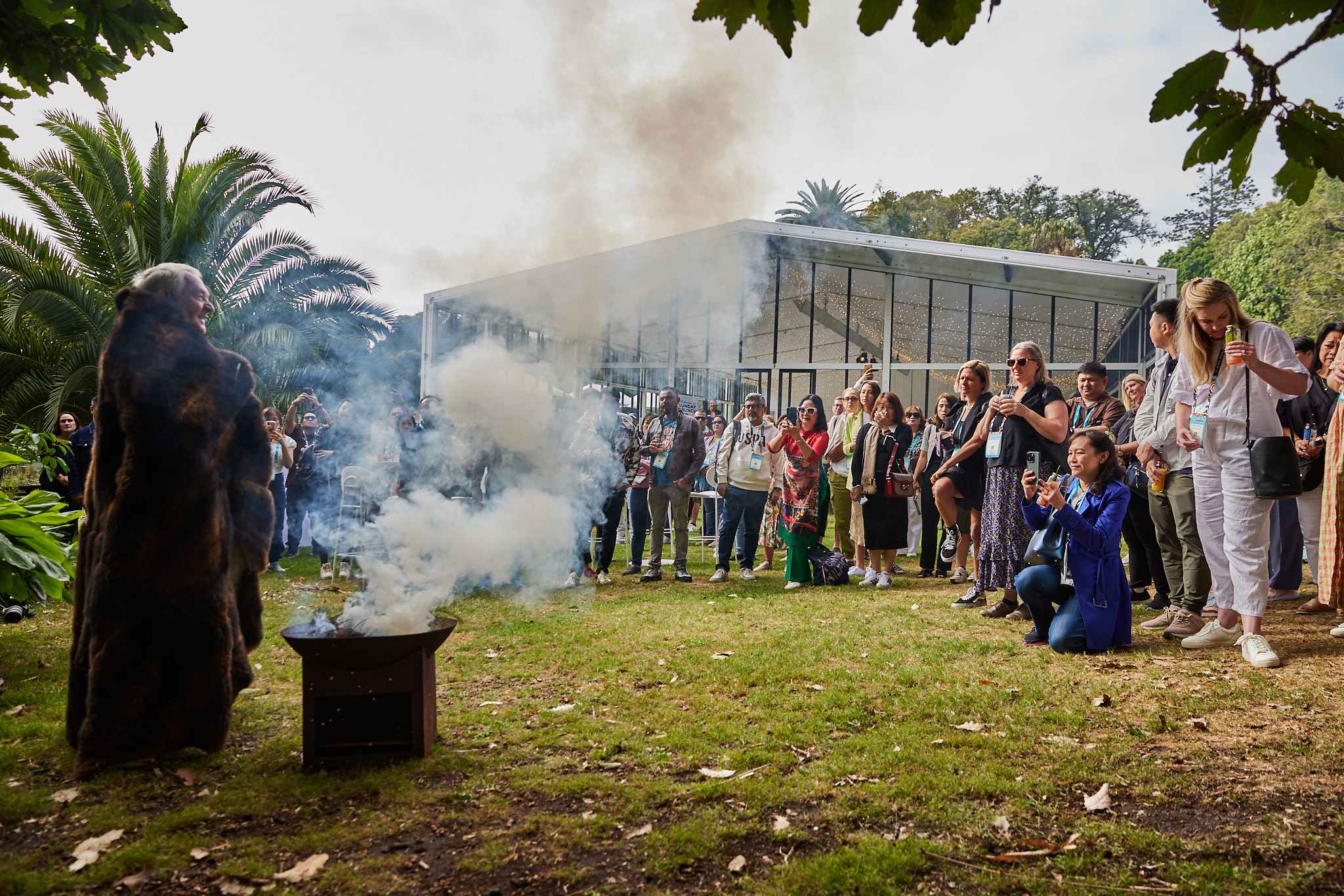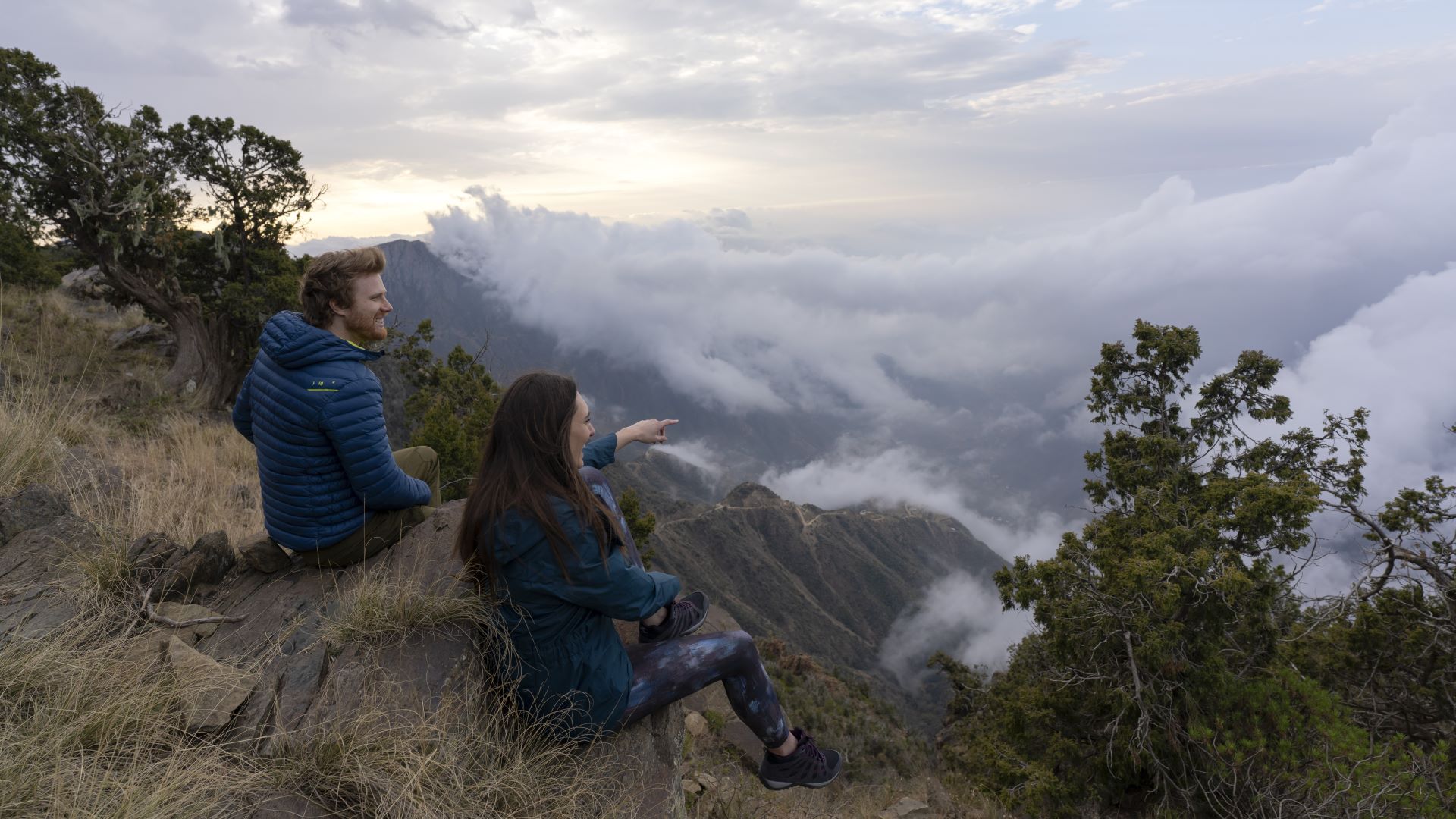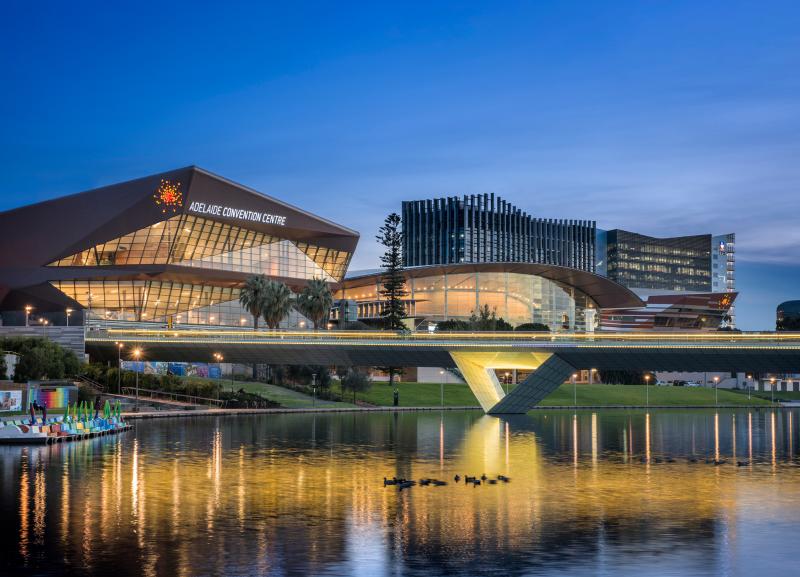Balinese cooking classes have become a favourite option for travelling groups as they offer an irresistible value proposition: they can accommodate large numbers of people; are culturally engaging; and, most importantly, are seriously fun and offer takeaway value. At the end of the class, not only will participants have gained a good understanding of Balinese cooking and its philosophy, but also a new set of kitchen skills that they can bring home. Here is selection of some of the island’s hottest kitchens.

BALI ASLI
Located in the northeast of Bali, about two hours’ drive from the airport, Bali Asli is a little far from the beaten track but it is without a doubt one of the most immersive culinary experiences on offer. This restaurant-cum-cooking school is nestled in the foothill of Mount Agung, Bali’s most revered volcano, and is surrounded by paddy fields. True to its namesake, Bali Asli, which means “real Bali” in Indonesian, prides itself on providing an authentic experience.
“Bali Asli is the product of my dreams,” says Penelope Williams, chef-owner of Bali Asli. “And we love promoting our community without exploiting it or its people. We buy from those who fish, farm and forage in the nearby fields, ocean and jungle.”
Penelope, an expat from Australia, is the driving force behind Bali Asli’s excellent culinary tours. The former executive chef of restaurant Alila Manggis created a series of fun classes themed “A day in the life of…”, which takes participants on a leisurely trek through the local village to learn how palm wine is made, or how fishing is done from a traditional Jukung boat. There's also the “A day in the life of a Balinese lady” programme, which includes a trip to nearby Amlapura Market to shop for ingredients for the class.
Several other new tours have been developed since then, including the corporate-themed “Culinary Olympics.” Every class includes an adventure into remote areas. The school also does cultural scavenger hunts and other team-building activities that can be tailor-made.
You can access Bali Asli via car and medium-sized van. The restaurant cannot provide accommodation but it does have partnerships with many establishments within 30 minutes’ drive, and rooms can be organised through Bali Asli as part of the package.
Group size: Up to 150 persons per event. Minimum two.
Duration: Regular classes from 0800 to lunchtime. Tailor-made events can vary.
Dishes may include: Eastern Balinese lunch items such as nasi sele (organic Balinese rice), urab paku and don kacang panjang (young fern tips with long bean leaves, sweet red chili and freshly grated coconut) or sate ikan laut (fish satay with ginger flower and lime leaf sambal).
Price: From IDR965,000 (US$80) per person to IDR1,400,000 (US$115) for the mountain biking-cooking class combo.

BUMBU BALI
One of the first cooking classes on the island, Bumbu Bali started in 1997. It remains popular with tourists. The restaurant’s Swiss-born founder Heinz von Holzen was former executive chef of the island’s Grand Hyatt and The Ritz Carlton (now Ayana Resort and Spa Bali), and he has authored several authoritative cookbooks on Balinese and Indonesian cuisine.
Heinz says he spent “two decades investigating and documenting Balinese cuisine, of which the result we now use as the foundation in the style of cooking served in our restaurants.”
The sought-after cooking class starts early with a market visit led by von Holzen himself. There, he provides a basic primer on Balinese produce as the group weaves its way through the vibrant market buying ingredients for the day. The next item on the agenda is a visit to a local fisherman to pick up fresh catches. Once back at Bumbu Bali, they enjoy breakfast, and start the class set against the backdrop of a real Balinese kitchen.
This is where Bumbu Bali trumps its competition: dressed in black-and-white aprons and armed with a handout of 25 recipes, participants will be taken on an educational journey, gaining knowledge that ranges from the little-known “Did you know that the birds used in Bali’s most popular duck dish, bebek betutu, are imported from Australia, because Balinese ducks are too skinny?” to the practical “Searing meat on high heat to seal in the juices is a myth, one that actually dries up the meat” to the fantastical "How to hypnotise a chook (chicken)”. Throughout the four-hour affair, participants work in teams to prepare recipes for lunch by chopping, mixing, mashing, steaming, braising and so forth.
Group size: Up to 16 persons per class and up to 100 persons per event.
Duration: Starts from 0600 and finishes around 1400, after class activity and subsequent lunch.
Dishes may include: Bubuh injin (black rice pudding), base be pasih (seafood spice paste), pesan wong (mushroom in banana leaf) and pisang goreng (fried bananas).
Price: Full day class US$90 per person with morning market visit and US$80 without. Classes are held on Mondays, Wednesdays and Fridays.

INTERCONTINENTAL BALI RESORT
For large groups running on a tight margin of error, holding an event at the Intercontinental may indeed be a sensible option. Its cooking class programme, held exclusively upon request from the guest, is immersive and fun – and participants get to work in the relative safety (and coolness) of a hotel kitchen. But before you imagine it to be totally sterile, do not worry, there is still shopping at the fish market at 0800, so it’s not all indoor and sun-deprived.
Kedonganan Fish Market in Jimbaran is a fishing community that supplies most of the island’s top hotels with freshly harvested fish and is a buzzing hive of activity that warrants a closer look – technicolour fish of all sizes and forms are lined next to each other while baby sharks and giant manta rays make occasional appearances.
After returning to the hotel, the cooking class commences around noontime in the quiet confines of Bella Cucina restaurant and its open kitchen. The class is very hands-on and will require teamwork akin to an assembly line. The chef will show you how to cook four traditional Balinese seafood dishes using purchases from the morning market run: crab soup, squid lawar (traditional Balinese salad), pepes udang (steamed prawns wrapped in banana leaf) and a fish dish that varies depending on what’s available on the day. Culinary efforts are rewarded with a sit-down lunch inside Bella Cucina around 1400, sampling the delicious results from the cook-off.
Group size: Two to six persons per class; up to 150 persons for an event.
Duration: 0800 to 1300. Corporate events can be tailored.
Dishes may include: Lawar kendus (toasted and then cooked sliced squid and long bean with Balinese spice) and lightly spiced grilled baby snapper.
Prices: IDR750,000 (US$61) per person inclusive of fish market tour, cooking class and lunch.

CASA LUNA
Listed amongst the world’s best cooking schools by The Australian, Casa Luna Cooking School is a solid culinary institution. Started in 1987 by naturalised Balinese Janet de Neefe, another giant in the Bali expat community who founded Ubud Writers & Readers Festival. Casa Luna cooking classes provide a fascinating insight into Balinese life, beliefs and culture through the lens of its food, cooking principles and culinary myths.
The classes are cerebral, delving into details on the role of food in Balinese society, its ceremonial use and religious importance. Participants are nurtured to work with each other and “touch” as much as possible – one advantage of the smaller class size. Classes are held in the grounds of the Second Honeymoon Guesthouse.
There is also Gourmet Food Tour on Sundays which takes groups to East Bali to learn how palm sugar and sea salt is made (cooking class not included). And on Sunday's the Twilight Smoked Duck Class, which teaches the secret to making Bali’s celebrated duck dish. Additionally, there is a new Gourmet Food Tour called Market Feast, on Thursday and Friday nights (cooking class not included).
Besides teaching practical kitchen skills and knowledge (galangal and lemongrass not only aid digestion but are also natural anti-depressants), Casa Luna stands next to Bumbu Bali when it comes to offering practical, holistic approach to cooking and how food can benefit both body and soul – a real and valuable takeaway.
Group size: Four to 16 persons per class, with up to 50 for an event.
Duration: Typically from 0800 to 1300. Tailor-made corporate events may run longer.
Dishes may include: Spiced fish in banana leaves, green coconut crêpes, gado-gado, chicken curry and sago pudding.
Price: IDR350,000 (US$29) per person for regular cooking class Monday to Friday; IDR450,000 (US$37) per person for Sunday Twilight Smoked Duck Class.

RAJA'S BALINESE RESTAURANT
Located in Nusa Dua Beach Hotel & Spa, the restaurant’s ability to merge authentic Balinese taste with a fine dining presentation has made it both a corporate and incentive favourite. In fact, Raja’s may just be Bali’s best-kept secret.
Food is taken seriously here. The restaurant insists that every dish listed on the menu is based on one served in Balinese palaces and villages, researched through interviews and taste trials in far-off hamlets. Each one has gone through a year of taste testing, guest trials and in-house cooking contests. All the work paid off when Raja's won the Hospitality Asia Platinum Award’s (HAPA) Gastronomic Experience – Asia Cuisine during the HAPA 2008–2010 Regional Series. This is one of the main reasons the restaurant regularly receives guests from other leading hotels.
Unique to this halal-certified cooking class is Raja’s location adjacent to the pool and only metres from the beachfront. Classes are usually held on the shaded terrace overlooking the pool, with more venues available to different sized groups, including the Princess Room, which is available for groups of up to ten people. Part of the class includes a visit to the hotel’s herb gardens to learn about the kaleidoscope of ingredients used in preparation of Balinese spices.
Group size: Four to ten persons per class, with up to 150 for an event.
Duration: From 1100 to 1300.
Dishes may include: Lawar kelungah (salad of young coconut shell with grilled prawn); sate lilit ayam (minced chicken wrapped around lemongrass); be siap betutu (whole chicken marinated in 16 spices, slow cooked for four hours in palm leaves); and, ares bebek (braised duck soup in spiced banana trunk broth).
Price: US$35 per person- one of the best deals on the island.

MOZAIC RESTAURANT GASTRONOMIQUE
Another culinary institution in Bali, Mozaic is widely credited as being one of the first fine dining restaurants to set up shop on the island, which not only raised the bar but also spurred a new breed of gourmand travellers. Acclaimed chef and founder Chris Salans is a frequent Miele Guide award recipient and his brilliance has brought the restaurant its first – and indeed Southeast Asia’s first – “Les Grandes Tables du Monde” (Grand Tables of the World) listing by the prestigious Tradition set Qualité Association; promptly joining an exclusive membership worldwide. It is truly one of Asia’s top fine dining gems.
Mozaic’s cooking class programme, dubbed The Workshop, is delightfully stimulating and complex while remaining light-hearted and fun. Participants will thoroughly enjoy learning how to make foams, jus, stacks and sous-vide creations (among others) for the exquisite Franco-Indonesian dishes as well as select produce from Mozaic’s home garden, prepare them and marry them to Western dishes. Groups work with modern, state-of-the-art Miele appliances in a large, purpose-built classroom – perhaps Bali’s most sophisticated venue of its kind.
Classes are offered on Wednesdays and Saturdays and on specific days by arrangement or request. There are “Professional” or “Recreational” categories.
The chefs in charge of the respective classes, Blake Thornely at Mozaic Ubud and James Ephraim at the newly opened Mozaic Beachclub, are very attentive to students and always willing to step in and help with any preparation.
Group size: Four to 24 persons per class; 150 to 200 for an event.
Duration: 1230-1700 for half day and 1000-1700 for a full day.
Dishes may include: Young jackfruit and cepe mushroom soup; roasted pigeon in a kluwek-infused broth; confit coral trout, coriander braised baby potatoes and creme fraiche sambal kecicang; and, rack of lamb, curry turnip and cocoa.
Price: Starting from IDR900,000 (US$74) per person for a half-day Recreational class for one to four persons, to IDR1,300,000 (US$106) for a full day Professional class for a group of same size.
BALINESE COOKING 101
1. Philosophy
Balinese cuisine is a mix of indigenous traditions, culinary flavours from other Indonesian islands, and Chinese and Indian influences. The yin and yang principle is of paramount importance in Balinese cuisine, and islanders use food not only for nutrition, but also for healing and therapy.
2. Ingredients
Potent herbs and spices are copiously used in Balinese cuisine, epecially bumbu (spices mix), for every conceivable usage: some are for soup, others for marinades and then there are ones only for grilling.
A quintessential bumbu recipe consists of garlic, ginger, galangal, turmeric, hot chili, red chili and shallot, which are blended or chopped and mixed together before being sautéed for about three to five minutes over medium heat and then mixed with coconut milk, salam leaves, chopped lemongrass and palm sugar.
Unlike the rest of Muslim-dominated Indonesia, pork is not only eaten in Bali, but also preferred. Beef, however, is rarely used due to the Balinese’s Hindu beliefs. Rice is a staple, usually eaten with lawar (salad), chicken, fruit, vegetables and seafood.
3. Cooking technique
Traditionally, Balinese cooking utilises slow cooking, a nod to its ancient past when gas stoves were unavailable. As a result meat has enough time to absorb bumbu while being tenderised to the point of falling off the bone.
CONTACTS
BALI ASLI
Jl Raya Glumpang, Glumpang village, Amlapura, Karangasem, Bali, Indonesia
Contact: Penelope Jane Williams, director/executive chef
Tel: +62 8123 816 051 / +62 8289 7030 098
Email: penelope@baliasli.com.au
skype: Baliaslipenny
BUMBU BALI
Jl Pratama, Tanjung Benoa, PO Box 132, Nusa Dua 80363, Bali, Indonesia
Contact: Heinz von Holzen, chef-owner
Tel: +62 361 774 502 / +62 361 772 299
Email: hvhfood@indosat.net.id /
heinz@balifoods.com
INTERCONTINENTAL BALI RESORT
Jl Uluwatu 45, Jimbaran, Bali 80361, Indonesia
Contact: Vineet Mahajan, director of sales and marketing
Tel: +62 361 701 888
Email: vineet.mahajan@ihg.com
CASA LUNA
Honeymoon Guesthouses, Jl Bisma, Ubud, Bali 80571 Indonesia
Contact: Janet de Neefe, proprietor
Tel: +62 361 973 282 / +62 361 973 282
Email: cookingschool@casalunabali.com
casalunabali.com/cooking-school
RAJA’S BALINESE restaurant
Nusa Dua Beach Hotel & Spa, Kawasan Pariwisata Nusa Dua Lot North 4, Nusa Dua 80363, Bali – Indonesia
Contact: Angelina, marketing communications manager
Tel: +62 (361) 771210
Email: angelina@nusaduahotel.com
MOZAIC RESTAURANT GASTRONOMIQUE
Jl Raya Sanggingan, Ubud, Bali, Indonesia
Contact: Marsha Eka, marketing specialist-MICE
Tel: +62 361 975 768
Email: marketing@mozaic-bali.com / info@mozaic-bali.com


